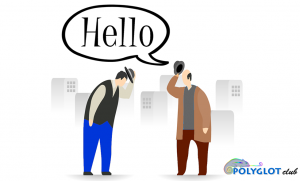Difference between revisions of "Language/Korean/Vocabulary/How-to-Say-Hello-and-Greetings"
< Language | Korean | Vocabulary
Jump to navigation
Jump to search
m (Quick edit) |
m (Quick edit) |
||
| Line 171: | Line 171: | ||
===How to Say "Hello" in Korean | 90 Day Korean - YouTube=== | ===How to Say "Hello" in Korean | 90 Day Korean - YouTube=== | ||
<youtube>https://www.youtube.com/watch?v=dfmZLyE_Rjg</youtube> | <youtube>https://www.youtube.com/watch?v=dfmZLyE_Rjg</youtube> | ||
==Related Lessons== | |||
* [[Language/Korean/Vocabulary/Colors|Colors]] | |||
* [[Language/Korean/Vocabulary/Fruits|Fruits]] | |||
* [[Language/Korean/Vocabulary/Feelings-and-Emotions|Feelings and Emotions]] | |||
* [[Language/Korean/Vocabulary/Education|Education]] | |||
* [[Language/Korean/Vocabulary/Food|Food]] | |||
* [[Language/Korean/Vocabulary/Drinks|Drinks]] | |||
* [[Language/Korean/Vocabulary/Count-to-10|Count to 10]] | |||
* [[Language/Korean/Vocabulary/Days-of-the-Week|Days of the Week]] | |||
* [[Language/Korean/Vocabulary/Animals|Animals]] | |||
Revision as of 14:45, 26 February 2023
🤗 Korean Greetings for Everyday Life
Hi Korean learners! 😃
Do you want to learn how to say “Hello” in Korean?
Greetings are an important part of any language because they allow you to connect and communicate with others.
If you’re planning a trip to the country or are trying to learn Korean, keep reading to discover some of the most important greetings.
Let’s get started! 🤗
Greetings
| English | Korean |
|---|---|
| annyeong haseyo: informal greeting (Hello) | 안녕하세요 |
| annyeong hasimnikka: general greeting | 안녕하십니까 |
| annyeong: informal greeting | 안녕 |
| annyeonghi jumushossomnikka: morning greeting | 안녕히 주무셨습니까 |
| annyeonghi jumushossoyo: morning greeting | 안녕히 주무셨어요 |
| joun achimipnida: morning greeting | 좋은아침입니다 |
| joun achim: morning greeting | 좋은아침 |
| joun jonyokipnida: evening greeting | 좋은저녁입니다 |
| joun bamipnida: nighttime greeting | 좋은밤입니다 |
| eotteoke jinaeseyo: how are you? | 어떻게 지내세요? |
| jal jinaeyo: reply to 어떻게 지내세요 | 잘 지대요 |
| eottoshimnikka: how are you? | 어떠십니까? |
| eotteoke jinaesimnikka: how are you? | 어떻게 지내십니까? |
| jal jinaesimnikka: how are you? | 잘 지넸습니까? |
| jal jinaemnida: reply to 어떻게 지내십니까 and 잘 지넸습니까 | 잘 지냅니다 |
| jal jinaemnida gamsahamnida: reply to 어떻게 지내십니까 | 잘 지냅니다, 감사합니다 |
| jal jinaeshossyo: how are you? | 잘 지내셨어요 |
| jal jinaessoyo: reply to 잘 지내셨어요 | 잘 지냈어요 |
| ne: reply to 잘 지내셨어요 | 네 |
| shiksa hashossoyo: have you eaten? | 식사하셨어요? |
| eodi gani: informal greeting, literally "are you going somewhere" | 어디 가니? |
| eung, eodi ga: reply to 어디 가니 | 응, 어디 가 |
| eoseo oseyo: welcome greeting | 어서 오세요 |
| hwanyeong hamnida: welcome greeting | 환영합니다 |
| annyeong hashipnegga: general greeting in Pyongyang dialect (평안) | 안녕하십네까 |

